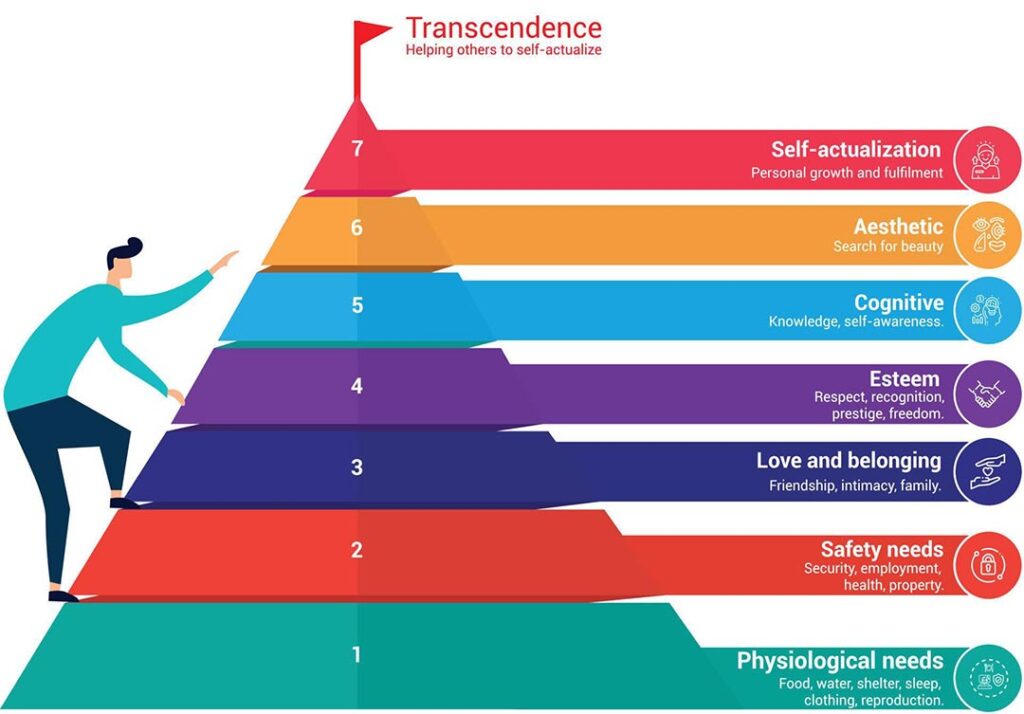Germany, with its strong industrial structure, high-technology products, and export-driven economy, is not only one of Europe's largest economies but also ranks among the world's largest. This economic power makes Germany an attractive center for international banking. Particularly, the city of Frankfurt am Main is considered the heart of the global finance world and the financial institutions in this city solidify Germany's active role in the global economy.
Germany leads the world in sectors such as automotive, machinery, chemicals, and electronic products. The country maintains economic stability through disciplined fiscal policies and a strong industrial base. Despite challenging periods like global trade tensions and pandemics, Germany has managed to recover quickly. However, global economic fluctuations, international trade wars, and pandemics affect the German economy and necessitate a continuous need for economic policy and strategy adaptation.
Germany offers a broad spectrum of services in the field of international banking. Major banks like Deutsche Bank, Commerzbank, and DZ Bank, as well as Barclays Bank, BNP Paribas, Citibank, and many other international banks, are significant players in the global financial markets through their operations in Germany. These banks offer a range of services from corporate finance to private banking, asset management, and investment banking.
Frankfurt is considered the financial heart of Germany, and the Frankfurt Stock Exchange is one of the largest in the world. Additionally, the presence of the European Central Bank in Frankfurt further elevates the city's significance in the financial markets.
The banking sector in Germany is strictly regulated and supervised by institutions such as the Federal Financial Supervisory Authority (BaFin). This ensures the sector remains healthy, transparent, and stable.
German banks, with their extensive international networks and partnerships, are well-integrated into the global financial system. This makes Germany an advantageous center for international transactions.
The German banking sector is open to innovations such as digital banking, fintech initiatives, and blockchain technology. This encourages continuous development of the sector and adaptation to customer needs.
International banks operating in Germany contribute significantly to both the German and global economy through their wide range of services, global reach, and innovation capacities. From facilitating global trade and investment to pioneering in the field of financial technology, they lead in many areas.
The international banking sector in Germany, with its broad range of services, robust regulatory framework, and global connections, stands out. These characteristics make the country an attractive financial center for both local and international clients. With its active role in the global economy, Germany's finance sector offers valuable financial solutions to both individual and corporate clients, contributing significantly to economic growth and stability.
Share:
Related Articles

Healthy Growth: Why Organizations Sl ...
Companies want to grow. More market share, higher revenues, larger organiza ...

Sustainable Leadership: Power Built ...
Today, the concept of sustainability sits at the center of almost every str ...

Why Do Managers Struggle with Genera ...
A reality long felt in the business world is this: there is a natural diffe ...

Leadership
Support, love, and trust received in childhood nurture self-confidence, cou ...

Generation Z: Not Just a Mirror, but ...
One of the most frequent complaints in today’s business world is: “Young em ...

A New Era in Business with Artificia ...
The Industrial Revolution began with steam. Then came electricity, computer ...

The New Face of Entrepreneurship: Wo ...
The new generation of entrepreneurship is no longer solely profit-driven; i ...

Understood Employees Contribute and ...
In the corporate world, we often hear statements like: “They’re talented, b ...

The Silent Power of Corporate Succes ...
In today's business world, organizations operate in an environment shaped b ...

Customer Relations and Training in B ...
Bancassurance, a business model in which banks market insurance products to ...

What Awaits the Business World? A St ...
Digitalization is no longer just a technological trend but a necessity for ...

Digital Transformation in Conflict M ...
Conflict is a reality we encounter in all aspects of life. Whether at home, ...

The Road to Success: Market Dynamics ...
In today’s rapidly changing market conditions, the importance of management ...

Leadership in the Digital Age: A New ...
Leadership in the digital age requires embracing continuous learning, innov ...

Mastering Risk Management
Mastering risk management is not merely an option for businesses but a nece ...

International Banking in Germany: A ...
Germany, with its strong industrial structure, high-technology products, an ...

Leadership and Maslow's Hierarchy of ...
Abraham Maslow's hierarchy of needs is a fundamental psychological theory u ...

Leadership and Sustainability of Org ...
Today's business world is characterized by continuous change, technological ...

The Importance of Coaching Skills f ...
The Importance of Coaching Skills for LeadersCoaching skills are essenti ...

Fintech in Turkey: The Rise of Finan ...
Fintech in Turkey: The Rise of Financial Technology

Bancassurance
Bancassurance is a business model that is among the financial services offe ...

Banking and Frankfurt
When the banking and finance sector in Europe is analyzed, it is seen that ...

Digital Banking and Germany
Digital banking is a banking service where customers can do their banking o ...

Banking in Germany
Euro used since 2002 in The Eurozone, the currency of 19 EU members. There ...

Strategic Communication
Strategic communication plays a critical role in the success of an organiza ...

Importance of Supply Chain
The supply chain is a critical factor in which a company manages the flow o ...

Key to Success: Going Digital
Digital transformation is a transformation process that aims to increase th ...

Welfare
Poverty and inequality are one of the biggest challenges the current societ ...

ChatGPT
ChatGPT, developed by the OpenAI company known for its work and research in ...

What is Emotional Intelligence and w ...
Emotional intelligence (also known as emotional quotient or EQ) is the abil ...

The Importance of Women's Employment ...
Women's participation in the workforce is closely related to the level of d ...

Digital Banking II – Digital Banking ...
A serious step taken for the spread of “digital banking” in Turkey, providi ...

The Perception of Morality within Ma ...
If everybody in the world jumped out of a window, would you? This question ...

Digital Banking
Digital banking is a banking technology that offers customers the opportuni ...

Banking, Artificial Intelligence and ...
We have heard the concepts of metaverse, artificial intelligence and machin ...

Green Asset Ratio
Sustainable finance has an important place among the investments made for t ...

Servant Leadership
There is an effective form of management that we often hear about today: se ...

Sustainability In The Global Banking ...
Before Covid-19 wreaked havoc on the world’s economies, the global banking ...

Revolution of Digital Banking
With the European Central Bank considering to investigate for a digital cur ...

Taking Action and Making Decisions i ...
Uncertainty is the fact that an event is not within the framework of certai ...

Wind of Change
Change is an important concept that must be managed for employees at all le ...

Organizational Justice
“What is justice? Giving water to trees. What is injustice? To give water t ...

Open Banking
Digital transformation has started to show its effects in every aspect of o ...

Digital Literacy And Corporate Life
There are many innovations that managers and employees need to follow in or ...

Financial Literacy
The words money and economy are two important concepts that have a great pl ...

Sustainability and Bank
The solutions we have found to our various needs throughout history and ada ...

Adaptability, Flexibility and Leader ...
Being able to adapt to changing conditions is very, very important not only ...

Creativity and Leadership Relationsh ...
The world is getting more competitive every day. For this reason, the servi ...

Competitive Analysis and Banking Sec ...
Competition analysis requires you to examine your direct and indirect compe ...

Delegation in Management
The statements "two heads are better than one" or "teamwork makes the dream ...

Climate Change
All creatures evolve to best adapt to environmental impacts. Those who are ...

Change of Banking Service Channels i ...
Global crises such as the pandemic, force the existing structures to change ...

Innovation
It is undeniable that innovation has a very important place in today's worl ...

Artificial Intelligence
Artificial intelligence is no longer just something specific to science fic ...

Entrepreneurship
Entrepreneurship is the process of starting a new business that incorporate ...

Global Leadership
The world is changing day by day and the information we have today is out o ...

Resilience and Leadership
We encounter many events in life that cause us difficulties and stress. How ...

Entrepreneurial Spirit for Leaders
Why is important for success? The conventional perception of entrepreneursh ...

Finance Leadership in a Pandemic
Crises bring along a period in which institutions need to review their fina ...

Crisis Management
Crisis is a state of tension that puts the existence and goals of an organi ...

Strategic Leadership and Pandemic
Strategic Leader is the person who sets the roadmap to achieve the ultimate ...

Awareness, Appreciation, Success
It is very important for a person to recognize himself, discover his power ...

Woman and Career
People who are raised by unemployed mothers have a mother model in their mi ...

Conflict Management
In the broadest sense, conflict is disagreement between two or more people ...

Leading with Kindness
Kindness is an important virtue. Kindness in all areas of life makes relati ...

Smart Meetings
Meeting management is the process of managing all stages and components of ...

Negotiation Management
Negotiation is defined as a dialogue aimed at reaching a common and benefic ...

Virtual Leadership
The repercussions of the digitalization process in business life were sprea ...

Manager and Patience
Patience is an important concept in management. Patience is active, not pas ...

Being All Ears
Human beings differ from other creatures in their way of communicating. Com ...

Networking
The fact that managers in the corporate world act with awareness of network ...

Asking Strong Questions
For managers, asking a strong question is an important skill. Managers, who ...

Managing Yourself
The manager at work is in communication with the other parts of the busines ...

Mental Immunity
In the fight against Coronavirus (Covid-19) pandemic, knowledge and awarene ...

